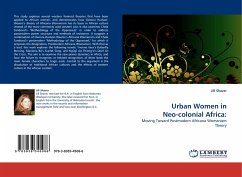This book describes the emergence of a new materialist orientation in social theory, driven by acknowledgement of the centrality and irreducibility of difference as a key concept in both the social and natural sciences and the problems this poses for scientific enquiry, political decision-making and collective action. Using examples from climate change to genomics and to social justice movements, it examines how feedback processes between the organic, material and social realms are increasingly being revealed as determinants of our capacity to sustain planetary diversity and to shape the form and quality of human life.
Hinweis: Dieser Artikel kann nur an eine deutsche Lieferadresse ausgeliefert werden.
Hinweis: Dieser Artikel kann nur an eine deutsche Lieferadresse ausgeliefert werden.








